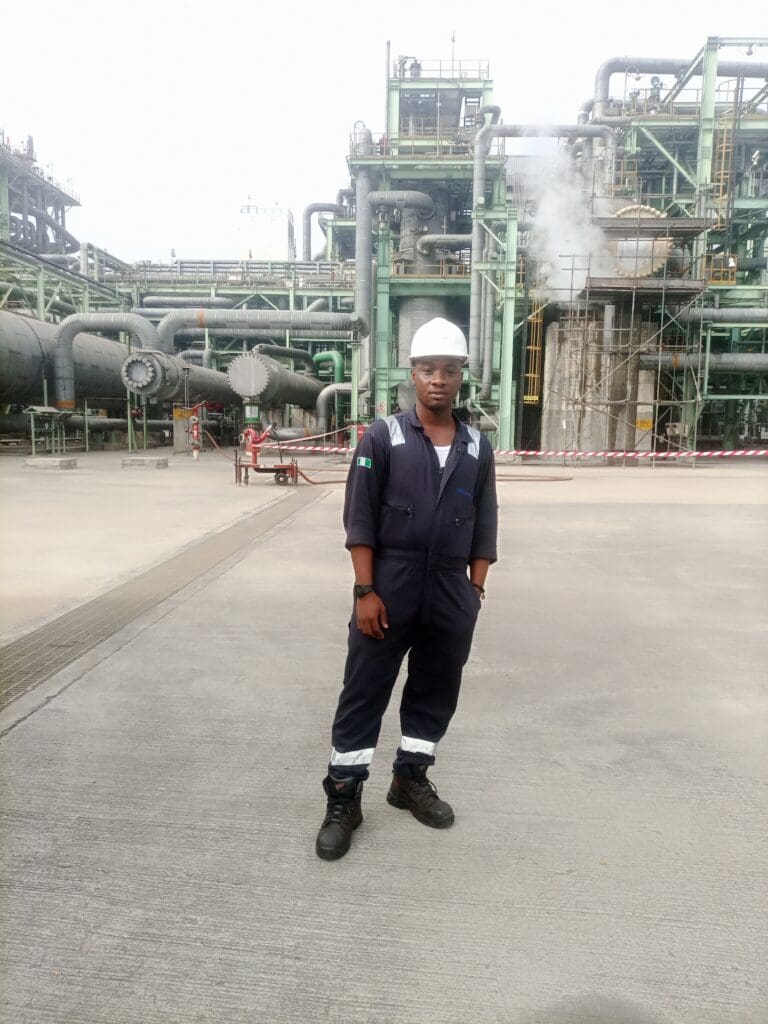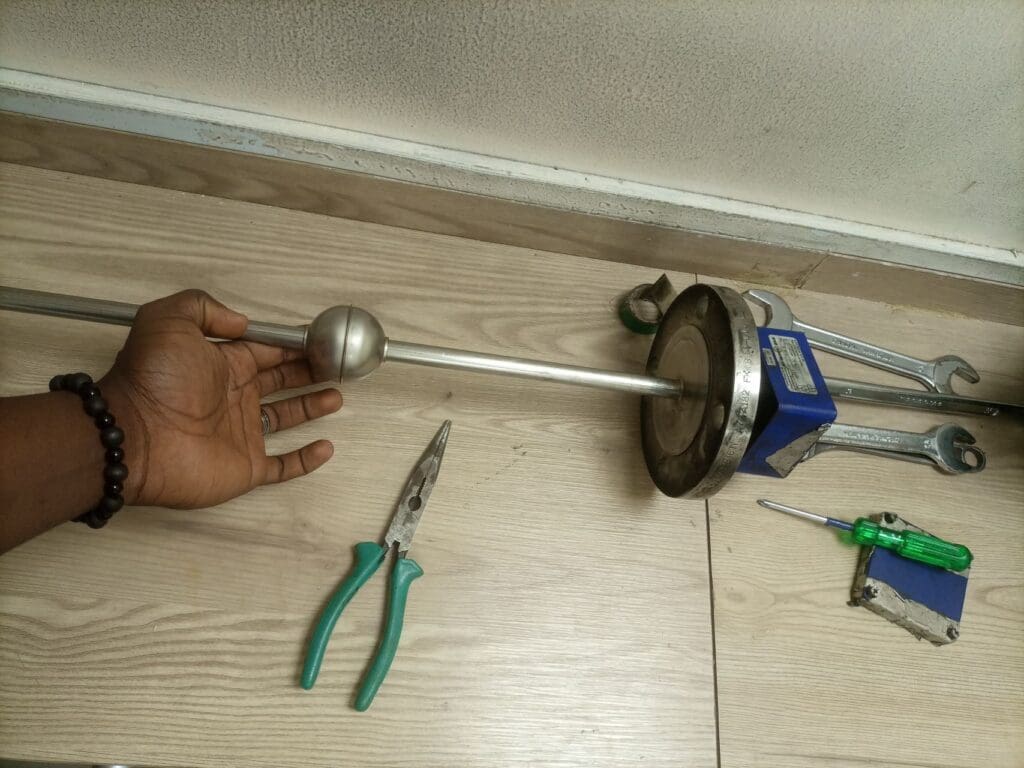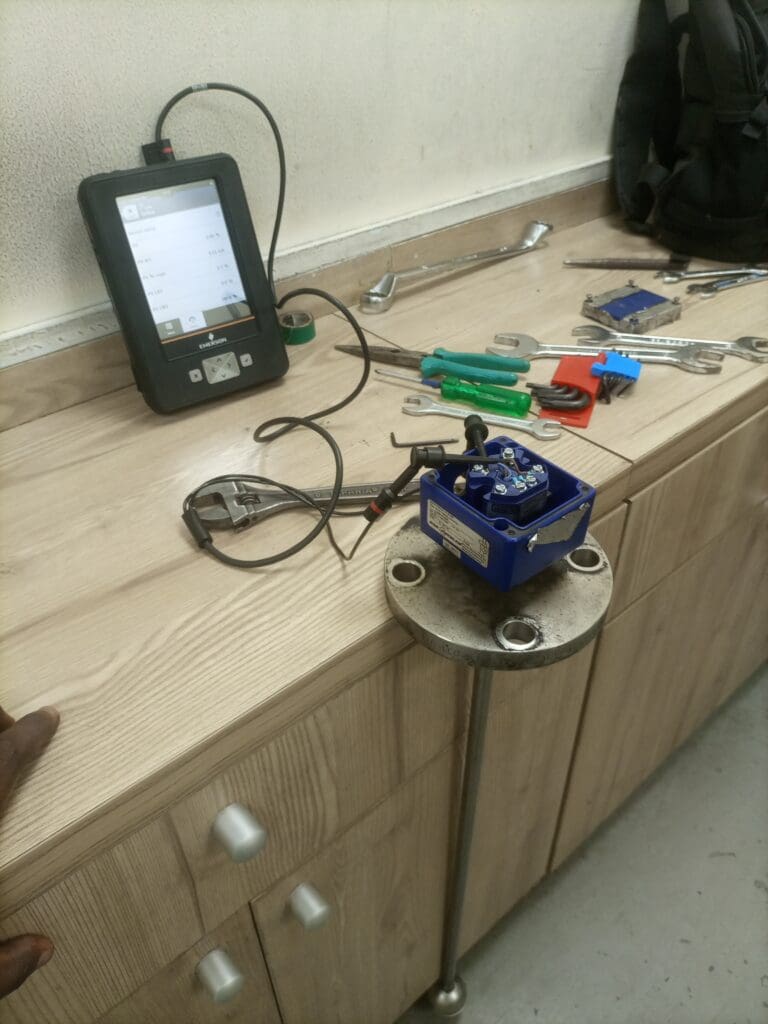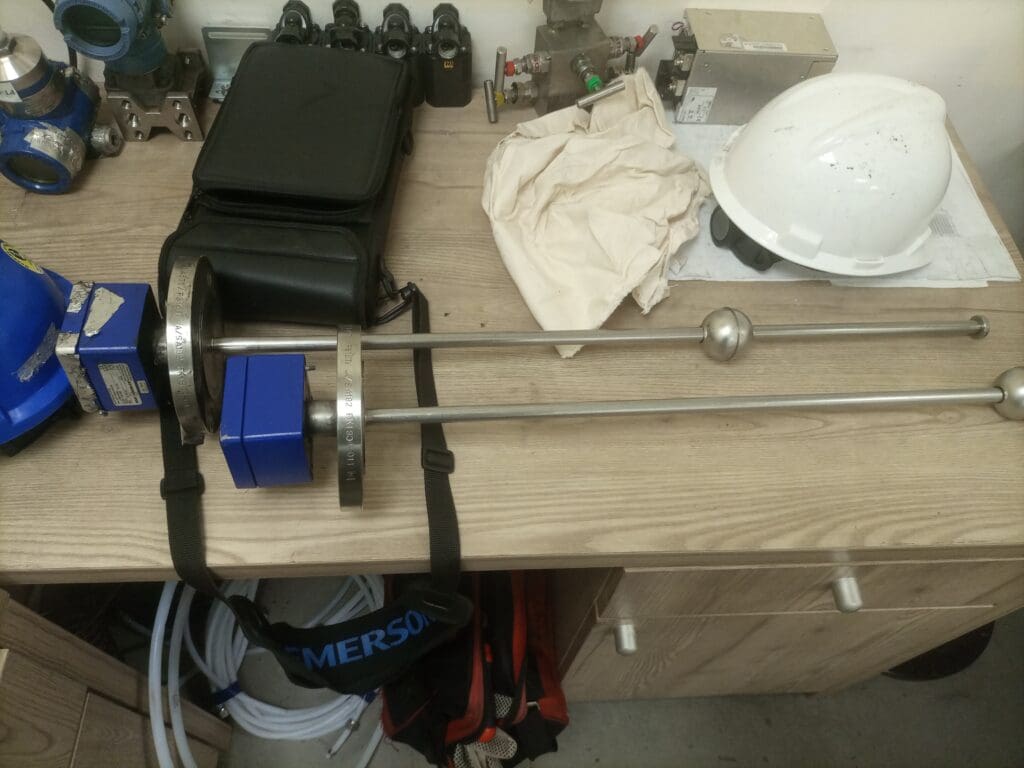Spotlight on life of an Electrical and Instrumentation Technician
Kevin Chimaji is an Electrical and Instrumentation Technician and has extensive experience in Calibration and testing, maintenance, troubleshooting of various instrument loops and devices. He currently works for Indorama Eleme Fertilizer and Chemicals Limited.


Kevin Chimaji an E&I Technician from Nigeria discusses his career installing, supporting, and repairing electrical and pneumatic instruments
Background and path to becoming an Electrical and Instrumentation Technician
Were you interested in technical things as a child?
When I was growing up, my Dad had a box where he kept electrical appliances such as cables, bulbs, switches and other items. So somehow, I found myself always going through the box. Probably because I often saw him there. I couldn’t tell at the time what it all did but I always found myself emptying out the box and trying to put things together.
Are there family members in a similar field or who have encouraged you?
My Dad saw that I had a passion for technical knowledge, and he encouraged me to try to get the best out of myself. He helped push me beyond my limits. When I had difficulties and asked questions, he was always there to offer practical advice and suggestions when necessary.
Who has/have been inspirations or mentors to you?
When I started studying Instrumentation and Control Engineering, our Head of Department, Engr Okonkwo I.I, was always of the opinion that this profession is not for the lazy people. He always inspired us to become the best.
Presently, my mentor is my manager. His work ethic, attention to detail, his effortless approach to difficult jobs and his “willing-to-teach” attitude are impressive.
Electrical instrumentation for Technicians and Engineers
Can you explain exactly what an Electrical and Instrumentation Technician does?
An Electrical and Instrument Technician is responsible for inspecting, installing, maintaining, repairing, and calibrating different types of electrical equipment and instruments.
We perform preventative maintenance checks on control valves, compressors, and auxiliary equipment.
In addition to this, we are allowed to perform inspection and maintenance checks on all control systems. Our role is to identify, report, and correct environmental and safety concerns.
All our work must comply with company standards, procedures, and regulatory requirements.
Can you give examples of the type of electrical and pneumatic equipment you work on, and they type of tools you use?
An example of an electrical device we work with is the level switch. This is used to control the level of a medium in a vessel.
For instance, when a vessel is supplied with liquid constantly without control, it overflows.
To prevent overflows, a level switch is installed near the top of the tank so that when the liquid touches the level switch, it outputs a signal to keep the liquid from overflowing the vessel.
On the other hand, when the liquid level drops as the liquid is discharged, a level switch is used to prevent completely draining the vessel.


Some of the tools we use are multimeters, screwdrivers, spanners, Allen keys etc.


Typical day as an Electrical and Instrumentation Technician
What’s your typical day like?
My typical day at work involves carrying out routine plant checks on some field devices and following up on any pending jobs as requested by the operations department.
How much of your time is spent working on equipment?
There’s no fixed amount of time working on any equipment, it depends on the severity of the job. Could by more, it could be less.
What do you do when you are not working?
When am not working, I am reading. No amount of knowledge is enough for me. I want to get better every day and also get to a point in my job where I can proffer solutions to complex projects or issues even by others.
How much of your work is testing, preventative maintenance and installing, and how much is repair and troubleshooting?
Over 50% of the time is spent testing and troubleshooting. Since we work on electrical devices, we mostly check voltage and resistance.
Installation is more like 20% since the plant is always running, so we don’t have to install any device except during modifications.
Preventive maintenance is on a daily basis for critical setups like the mass spectrometer.
How many locations do you work in?
I am based in a fertilizer and chemical plant, but I am on call for any location. It could be the ammonia plant or the urea plant, in some cases the polisher section or cooling tower.
I am always ready! Lol
Most challenging part of the job as an Electrical and Instrumentation Technician
What do you find most challenging about the work?
The technical aspect of the job is the most challenging for me. Sometimes you have to spend hours troubleshooting and it can be a real mental challenge.
What has been your most difficult job so far?
My most difficult job so far was changing the power card of a motor operated valve. I was sweating all day long due to the complex terminations!
What has been your easiest job so far?
To think of my easiest ever job is really easy.
We had an issue with a transmitter and when I checked in the field, it was just a loose connection which I tightened back in less than a minute.
Making a winner
What sort of person is ideal for this work?
A goal-getter, a smart-worker and meticulous person will excel in this job
How important is it to stay up to date with other equipment not just the ones you work on?
Being up to date with other equipment is really important. You never know where you’ll find yourself tomorrow as far as instruments and equipment are concerned. There are loads of vendors out there improving daily. So, every E&I person is advised to be up to date.
How key is it to have a mentor?
A mentor is someone you can look up to and fall back on. Someone who can direct you and provide guidance and encouragement at any time.
Once I made a mistake on the job and throughout the day, I felt so bad. When I got home, I got a message from my manager, Engr Aniket Salunkhe, encouraging me and offering guidance. He told me how he made a mistake in his previous company and how he expected me to bounce back from it too. I texted him back and thanked him. That’s what mentors are for.
New people
What advice would you give to someone who has just started their first job as an Instrument Technician?
My advice to any Instrument Technician is that the first few months will be hectic. You might not be allowed to carry out any major jobs but don’t feel discouraged.
Grab any knowledge within your first few months because your opportunity will definitely come knocking. Once given any opportunity to do any job, make wise use of it. Do not be in a haste when approaching any job. Never overlook any job. My manager always says:
“There’s no such things as an easy job.”
Overconfidence will lead to disasters. Always be open and available to learn and remember, knowledge comes before money.


Apart from a strong technical background, what are the three most important skills to have?
I can answer that by giving the answer in my case. Aside from my technical skills, I feel that I have the following profile:
Good communication skills
A team player
Great attention to detail and problem solving




Responses